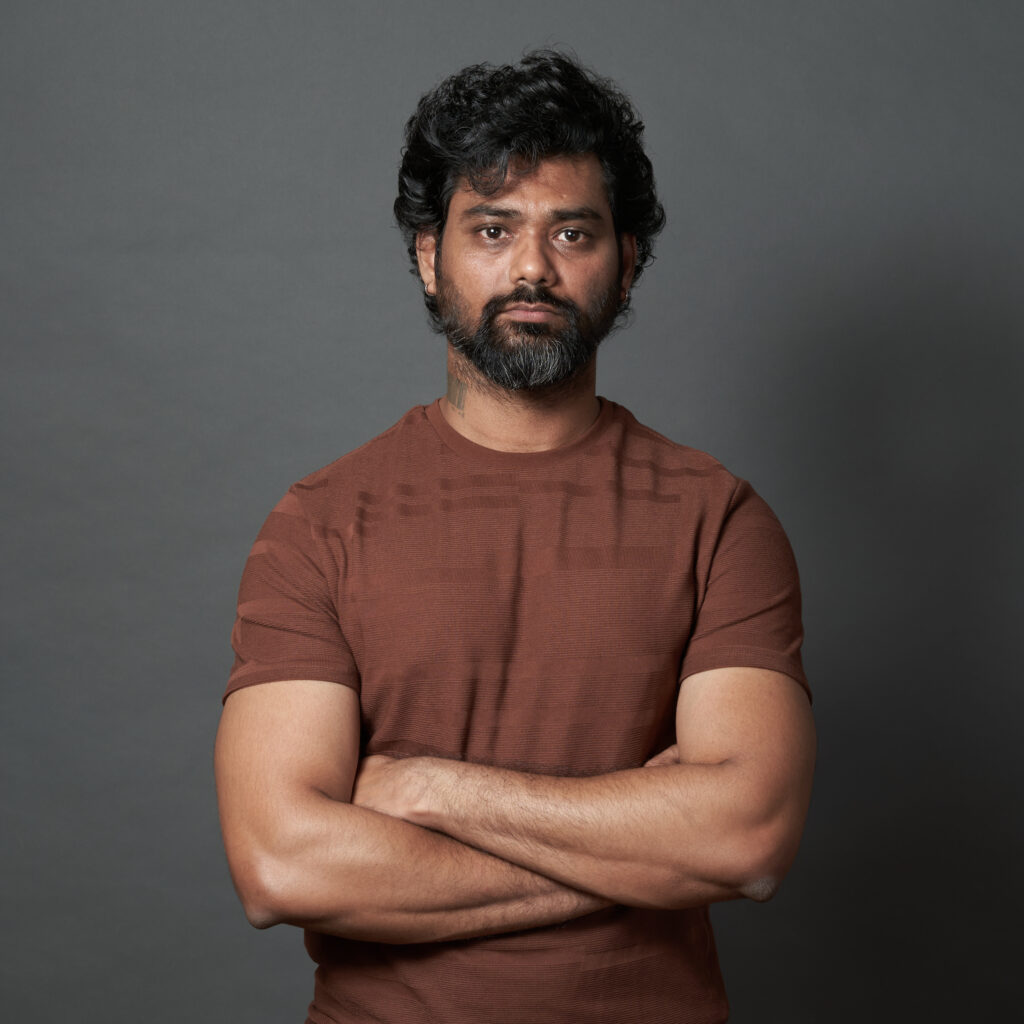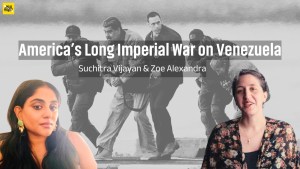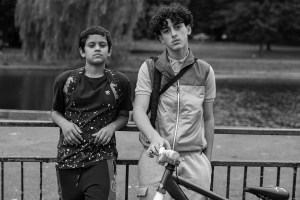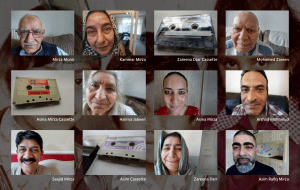
A Tender Portrayal of Acceptance: Rohan Parashuram Kanawade on His Sundance-Winning Film Sabar Bonda

Rohan Parashuram Kanawade was apprehensive about coming out to his parents. He had reasons to be. Pop culture is shaped by tragic queer stories and unyielding parents offering cruelty instead of love. He has seen friends from affluent backgrounds with educated parents struggle for acceptance. Kanawade’s father did not finish schooling and his mother didn’t receive a formal education. But here’s what happened: he came out and they accepted.
“My father coaxed me,” he rectified with a smile. “I was sad about something and he said unless I share what is inside, how will he help me? That’s when I came out.” The anticlimactic nature of the revelation opened up a reality that he rarely saw in films dealing with queer relationships. “Why don’t we see this open acceptance in more films?” he asked. “We are telling stories, right? Why can’t they be real and simple?”
When the time came for him to tell a story, Kanawade extended a course correction that throbs with gentility, but feels revolutionary in context. In his debut Marathi-language feature film, Sabar Bonda (Cactus Pears), a city-bred man, Anand (Bhushaan Manoj), goes to his village on the passing of his father. The 10-day grieving period gets constantly interrupted by queries about marriage from nosy relatives who are as particular about regimented grieving as they are about a conventional life.
The prospect of a 30-year-old unmarried man is unthinkable to them, as is the thought that he might be queer. As they take turns to ask the same question, he finds solace in the company of Balya (Suraaj Suman), an old friend dealing with similar intrusion from his family members.
Even as Kanawade designs Sabar Bonda as a portrait of grief, he preserves the men at the center with an intimacy that is radical in its disdain for stereotypes. Anand is cagey before his relatives but with his parents, especially with his mother (Jayshri Jagtap), he shares an openness that is rare and precious. She stands up for him before others and soothes him when he is sad. She knows why he does not want to get married. There is no fuss about the disclosure nor any excessive histrionics. It is so commonplace that it is extraordinary.
The filmmaker resists similar trappings while designing the central characters. Balya has grown up in a village and does not have the urban-approved lexicon for queerness; in one scene, he bashfully asks Anand if he has a “khaas dost” (“special friend”) in Mumbai. Yet he is the initiator of a familiarity that blooms into a companionship between him and Anand. By deploying these nuances, Kanawade lends a joy to same-sex relationships that refuse to carry the baggage of earning its right to exist through an impending tragic resolution.
Sabar Bonda premiered at the recently-concluded Sundance Film Festival under the World Cinema Dramatic Competition section and won the prestigious Grand Jury Prize Dramatic. Prior to the announcement, I spoke to Kanawade about his tender film, the challenges he faced making it, and if he was persuaded to change the ending. Here’s an edited excerpt from our conversation.

Ishita Sengupta: What was the origin of the film?
Rohan Parashuram Kanawade: My father passed away in 2016. This story is inspired by my experience of grieving him at our ancestral village. I’d avoided going there for a decade because my relatives would only ask about my marriage. It annoyed me. But when my father died, I had to go back. I was 30 then, and most of my cousins were married.
Everyone asked me the same question and I did not have any answer. I didn’t want to lie and I couldn’t come out since I was not sure how they would treat my mother if I did. For the 10 days that I was there, I would be inside the house with her. It was very lonely and I was plagued with apprehension, fearing the next person who would come and ask me something. I remember thinking: what if I had a friend here who knew everything and I could sneak out with him?
The idea stayed with me and I decided to write it. It was my way of changing the original experience and lending a tender journey to the central character.
ISG: How long did it take for you to write the story?
RK: I don’t write outlines or character history. All of it happens in my head. Once I reach a saturation point, I force myself to write it. There is no roadmap, which makes the process interesting and also frustrating. I keep writing and after I am done with the first draft, I write the entire script again to polish the details.
I started working on Sabar Bonda in 2020 and we started shooting in November 2023. I was revising the script till we went to the floor. Since the film does not have background music, a lot of time was spent on sound design. I wanted a layered texture to it.

ISG: One of the moving bits about Sabar Bonda is the empathy you extend to Anand’s parents in their easy acceptance of their son’s sexuality. The story acknowledges the father-son bond by circling back to Mumbai and giving Anand the space to mourn. What were your thoughts on designing the ending?
RK: I remember after my father’s funeral, the loss of his absence hit me once I moved back to Mumbai after the grieving period. By then I was living with my partner in the city, but the space I shared with my father expanded my grief. That is why my film had to end in Mumbai.
Several filmmakers told me that the film ended—for them—in the village. Why was I taking them back to Mumbai? But I was adamant. I knew Anand needed to come back to the city where he found his freedom, due to his parents. The space in his house might be cramped but that was not the point. Before that we see Anand and Balya meeting outside, but this is their home. And they need to sleep in each other’s arms.
ISG: As an independent film, how difficult was it to find funding? Were you ever told to change the ending?
RK: It was very difficult, and many people told me to change the ending. I said, “Absolutely not.” It was a continuous struggle to preserve it. When I shared the script with Neeraj Churi [a producer], with whom I did my previous short film, he expressed excitement. I remember telling him that it would be a long process and that we would face a lot of rejections but we have to persevere.
Making a film is always difficult; making an independent film is tougher and then with such a premise and with actors we have not seen before…it was daunting. There is static camera work and no background music. Everything was going against the norms of popular filmmaking. I was even asked to include songs. I refused.
Look, the film is based on my experience, and this is how things unfolded for me. Everyone’s experience is so different but when they start making films, it is always the same. There are too many rules. Where is the joy then of telling a story?

ISG: Sabar Bonda unfolds during a grieving period where the customs are depicted in detail. Were you apprehensive that these localized details might be lost in translation?
RK: No. Rather, you want to be local. That is when you get the essence of the country. I only wanted to write in a way that everyone around the world understands.
We had to be careful about the little things. For instance, in the film, there is a scene where the crow touches the pinda (rice balls offered to ancestors during the end of the grieving period) and the priest says that the soul of Anand’s father has departed. All the details from the grieving period in the film were picked up from my experience. In our community, if the father is alive then the children are not supposed to attend funerals. Since all my relatives are in the village, every time a funeral happened my father used to go. I had never experienced it till he died.
ISG: For you, how important was it to make the film in Marathi?
RK: It was important because the impact is greater when you tell a story like this in your mother tongue. I don’t think we could have achieved the same thing in Hindi. Besides, you see this Maharashtrian village, you see the characters dressing up a certain way. It wouldn’t have made sense if they spoke in Hindi after that. Many people will tell you many things but it is up to you to protect your vision.
My advice to anybody trying to make a film is to please listen to your gut feeling. No one will know how things are “supposed to be” because only you know that. The story is in your head, and it is for you to show. I wasted a lot of time because I was not doing that.
A Tender Portrayal of Acceptance: Rohan Parashuram Kanawade on His Sundance-Winning Film Sabar Bonda

Rohan Parashuram Kanawade was apprehensive about coming out to his parents. He had reasons to be. Pop culture is shaped by tragic queer stories and unyielding parents offering cruelty instead of love. He has seen friends from affluent backgrounds with educated parents struggle for acceptance. Kanawade’s father did not finish schooling and his mother didn’t receive a formal education. But here’s what happened: he came out and they accepted.
“My father coaxed me,” he rectified with a smile. “I was sad about something and he said unless I share what is inside, how will he help me? That’s when I came out.” The anticlimactic nature of the revelation opened up a reality that he rarely saw in films dealing with queer relationships. “Why don’t we see this open acceptance in more films?” he asked. “We are telling stories, right? Why can’t they be real and simple?”
When the time came for him to tell a story, Kanawade extended a course correction that throbs with gentility, but feels revolutionary in context. In his debut Marathi-language feature film, Sabar Bonda (Cactus Pears), a city-bred man, Anand (Bhushaan Manoj), goes to his village on the passing of his father. The 10-day grieving period gets constantly interrupted by queries about marriage from nosy relatives who are as particular about regimented grieving as they are about a conventional life.
The prospect of a 30-year-old unmarried man is unthinkable to them, as is the thought that he might be queer. As they take turns to ask the same question, he finds solace in the company of Balya (Suraaj Suman), an old friend dealing with similar intrusion from his family members.
Even as Kanawade designs Sabar Bonda as a portrait of grief, he preserves the men at the center with an intimacy that is radical in its disdain for stereotypes. Anand is cagey before his relatives but with his parents, especially with his mother (Jayshri Jagtap), he shares an openness that is rare and precious. She stands up for him before others and soothes him when he is sad. She knows why he does not want to get married. There is no fuss about the disclosure nor any excessive histrionics. It is so commonplace that it is extraordinary.
The filmmaker resists similar trappings while designing the central characters. Balya has grown up in a village and does not have the urban-approved lexicon for queerness; in one scene, he bashfully asks Anand if he has a “khaas dost” (“special friend”) in Mumbai. Yet he is the initiator of a familiarity that blooms into a companionship between him and Anand. By deploying these nuances, Kanawade lends a joy to same-sex relationships that refuse to carry the baggage of earning its right to exist through an impending tragic resolution.
Sabar Bonda premiered at the recently-concluded Sundance Film Festival under the World Cinema Dramatic Competition section and won the prestigious Grand Jury Prize Dramatic. Prior to the announcement, I spoke to Kanawade about his tender film, the challenges he faced making it, and if he was persuaded to change the ending. Here’s an edited excerpt from our conversation.

Ishita Sengupta: What was the origin of the film?
Rohan Parashuram Kanawade: My father passed away in 2016. This story is inspired by my experience of grieving him at our ancestral village. I’d avoided going there for a decade because my relatives would only ask about my marriage. It annoyed me. But when my father died, I had to go back. I was 30 then, and most of my cousins were married.
Everyone asked me the same question and I did not have any answer. I didn’t want to lie and I couldn’t come out since I was not sure how they would treat my mother if I did. For the 10 days that I was there, I would be inside the house with her. It was very lonely and I was plagued with apprehension, fearing the next person who would come and ask me something. I remember thinking: what if I had a friend here who knew everything and I could sneak out with him?
The idea stayed with me and I decided to write it. It was my way of changing the original experience and lending a tender journey to the central character.
ISG: How long did it take for you to write the story?
RK: I don’t write outlines or character history. All of it happens in my head. Once I reach a saturation point, I force myself to write it. There is no roadmap, which makes the process interesting and also frustrating. I keep writing and after I am done with the first draft, I write the entire script again to polish the details.
I started working on Sabar Bonda in 2020 and we started shooting in November 2023. I was revising the script till we went to the floor. Since the film does not have background music, a lot of time was spent on sound design. I wanted a layered texture to it.

ISG: One of the moving bits about Sabar Bonda is the empathy you extend to Anand’s parents in their easy acceptance of their son’s sexuality. The story acknowledges the father-son bond by circling back to Mumbai and giving Anand the space to mourn. What were your thoughts on designing the ending?
RK: I remember after my father’s funeral, the loss of his absence hit me once I moved back to Mumbai after the grieving period. By then I was living with my partner in the city, but the space I shared with my father expanded my grief. That is why my film had to end in Mumbai.
Several filmmakers told me that the film ended—for them—in the village. Why was I taking them back to Mumbai? But I was adamant. I knew Anand needed to come back to the city where he found his freedom, due to his parents. The space in his house might be cramped but that was not the point. Before that we see Anand and Balya meeting outside, but this is their home. And they need to sleep in each other’s arms.
ISG: As an independent film, how difficult was it to find funding? Were you ever told to change the ending?
RK: It was very difficult, and many people told me to change the ending. I said, “Absolutely not.” It was a continuous struggle to preserve it. When I shared the script with Neeraj Churi [a producer], with whom I did my previous short film, he expressed excitement. I remember telling him that it would be a long process and that we would face a lot of rejections but we have to persevere.
Making a film is always difficult; making an independent film is tougher and then with such a premise and with actors we have not seen before…it was daunting. There is static camera work and no background music. Everything was going against the norms of popular filmmaking. I was even asked to include songs. I refused.
Look, the film is based on my experience, and this is how things unfolded for me. Everyone’s experience is so different but when they start making films, it is always the same. There are too many rules. Where is the joy then of telling a story?

ISG: Sabar Bonda unfolds during a grieving period where the customs are depicted in detail. Were you apprehensive that these localized details might be lost in translation?
RK: No. Rather, you want to be local. That is when you get the essence of the country. I only wanted to write in a way that everyone around the world understands.
We had to be careful about the little things. For instance, in the film, there is a scene where the crow touches the pinda (rice balls offered to ancestors during the end of the grieving period) and the priest says that the soul of Anand’s father has departed. All the details from the grieving period in the film were picked up from my experience. In our community, if the father is alive then the children are not supposed to attend funerals. Since all my relatives are in the village, every time a funeral happened my father used to go. I had never experienced it till he died.
ISG: For you, how important was it to make the film in Marathi?
RK: It was important because the impact is greater when you tell a story like this in your mother tongue. I don’t think we could have achieved the same thing in Hindi. Besides, you see this Maharashtrian village, you see the characters dressing up a certain way. It wouldn’t have made sense if they spoke in Hindi after that. Many people will tell you many things but it is up to you to protect your vision.
My advice to anybody trying to make a film is to please listen to your gut feeling. No one will know how things are “supposed to be” because only you know that. The story is in your head, and it is for you to show. I wasted a lot of time because I was not doing that.
SUPPORT US
We like bringing the stories that don’t get told to you. For that, we need your support. However small, we would appreciate it.







